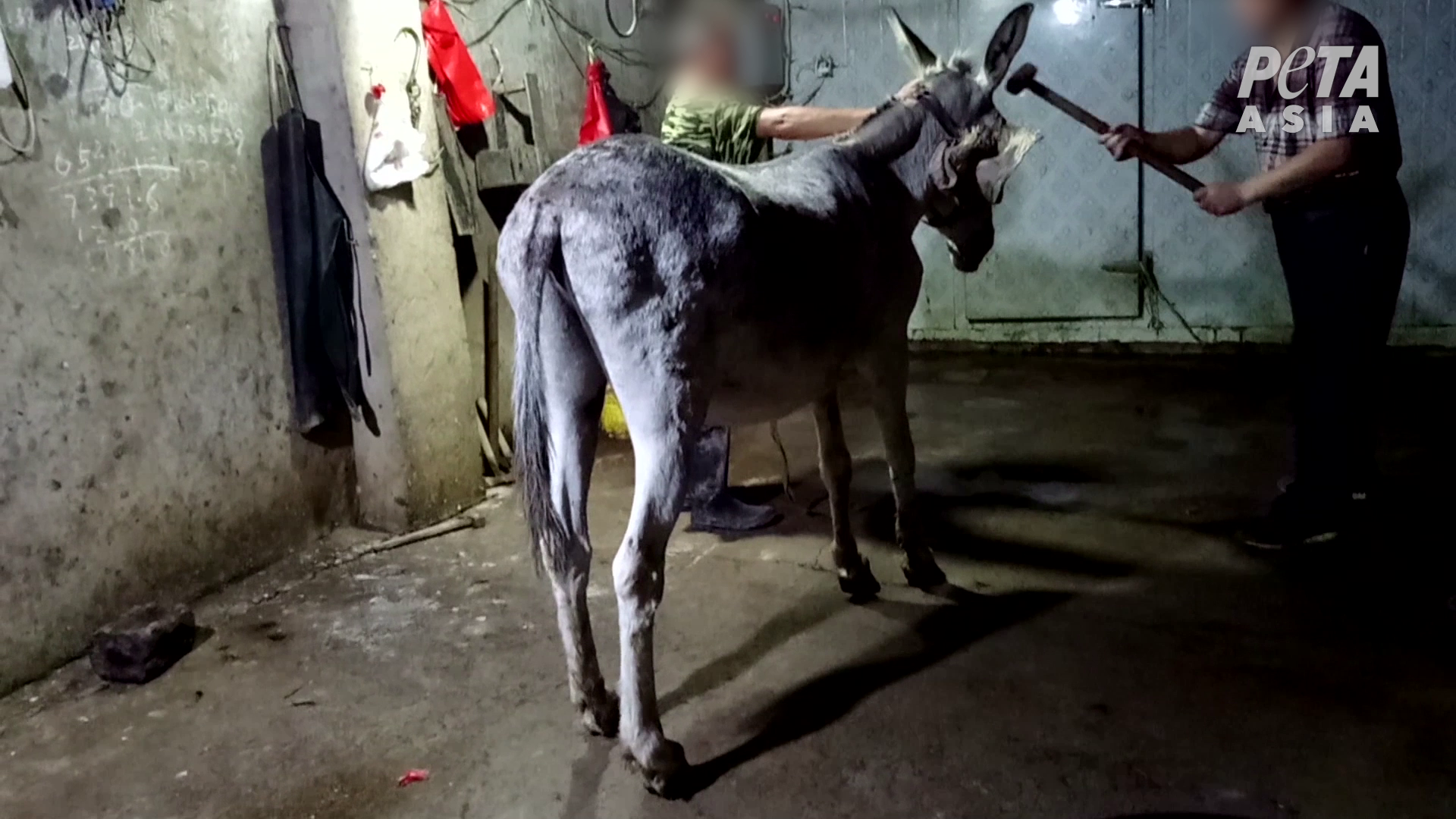Millions of donkeys 'beaten to death with hammers' to make traditional Chinese medicine
"Donkeys as young as five-months-old are bashed on the head and die a slow, agonising death, all for an ingredient no one needs"

Your support helps us to tell the story
From reproductive rights to climate change to Big Tech, The Independent is on the ground when the story is developing. Whether it's investigating the financials of Elon Musk's pro-Trump PAC or producing our latest documentary, 'The A Word', which shines a light on the American women fighting for reproductive rights, we know how important it is to parse out the facts from the messaging.
At such a critical moment in US history, we need reporters on the ground. Your donation allows us to keep sending journalists to speak to both sides of the story.
The Independent is trusted by Americans across the entire political spectrum. And unlike many other quality news outlets, we choose not to lock Americans out of our reporting and analysis with paywalls. We believe quality journalism should be available to everyone, paid for by those who can afford it.
Your support makes all the difference.New footage released by animal rights group PETA shows donkeys in Chinese farms being hit on the head with a sledgehammer in a bid to make ejiao, a medicine made from donkey skin.
Ejiao has become increasingly popular among affluent Chinese people who believe it as a cure for poor circulation, an anti-ageing treatment or a remedy for insomnia.
However, PETA says they've released the footage to dissuade consumers and highlight the cruel deaths suffered by some of the estimated 1.8 donkeys killed for their hides each year.
“In the ejiao trade, donkeys as young as five months old are bashed in the head and die a slow, agonising death, all for an ingredient no one needs,” said PETA Director of International Programmes Mimi Bekhechi. “PETA Asia is calling on kind people everywhere to reject ejiao and encourage their friends and family members to do the same.”
In a press release, PETA Asia said many of the donkeys seen by their observer were locked in filthy pens and standing in their own faeces or urine. They were killed with a sledgehammer because it was the cheapest method, the rights group said.
Last year, several African countries banned China from buying donkeys from them, saying the demand was proving unsustainable. Burkina Faso also banned them from buying donkey skins specifically.
“[Ejiao] is quite a popular ingredient in China that people may self-prescribe,” Chinese medicine expert Mazin Al-Khafaji told The Independent at the time. “But there is a shortage, and there are fakes around as it’s very expensive.”
“It’s what we call a blood tonic, so it stops bleeding and strengthens the blood. It’s used for anemia or low blood cell count,” he said.
“It’s a hard gel, made from donkey hide, which is then dissolved in hot water or alcohol. It’s also used topically in a cream, for leg ulcers for instance.”
Join our commenting forum
Join thought-provoking conversations, follow other Independent readers and see their replies
Comments